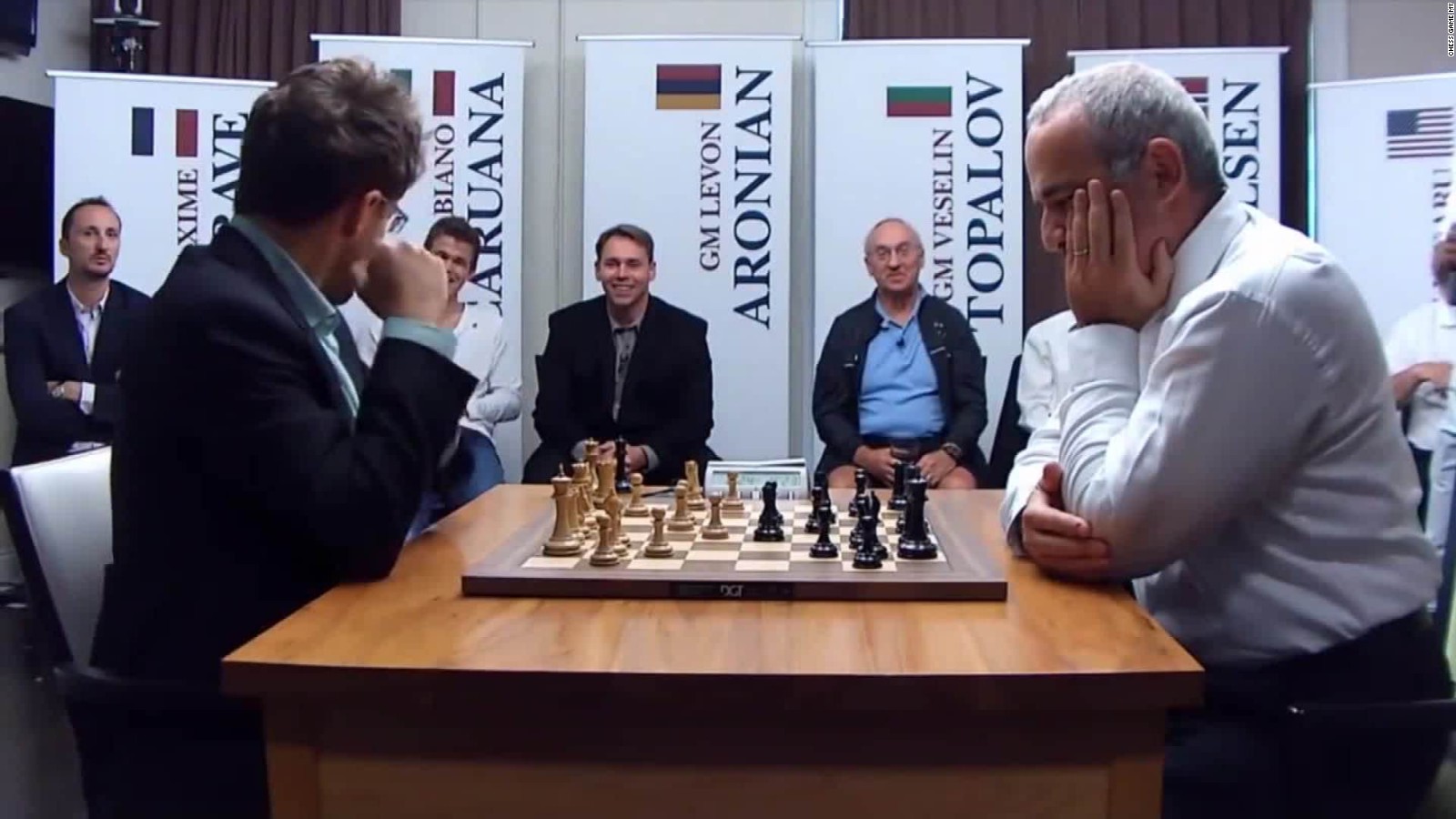Garry Kasparov Chess Game
Posted By admin On 16/03/18Comprehensive Garry Kasparov chess games collection, opening repertoire, tournament converages, biography and news. Garry Kasparov Would Like You to Stop. That’s not what Garry Kasparov sees Donald Trump or Vladimir Putin. The game of chess is game of. Programs For Single Mothers Returning To School. Italie Interdite Salieri.
First match • February 10, 1996: takes place in, • Result: Kasparov–Deep Blue (4–2) • Record set: First computer program to defeat a world champion in a game under tournament regulations Second match (rematch) • May 11, 1997: held in, • Result: Deep Blue–Kasparov (3½–2½) • Record set: First computer program to defeat a world champion in a match under tournament regulations Deep Blue versus Garry Kasparov was a pair of six-game matches between world chess champion and an IBM supercomputer called. The first match was played in Philadelphia in 1996 and won by Kasparov. The second was played in New York City in 1997 and won by Deep Blue. The 1997 match was the first defeat of a reigning world chess champion by a computer under tournament conditions. The 1997 match was the subject of a documentary film, The Man vs. Symbolic significance [ ] Deep Blue's win was seen as very symbolically significant, a sign that artificial intelligence was catching up to human intelligence, and could defeat one of humanity's great intellectual champions. Later analysis tended to play down Kasparov's loss as a result of uncharacteristically bad play on Kasparov's part, and play down the intellectual value of chess as a game which can be defeated by brute force.


Deep Blue's victory switched the canonical example of a game where humans outmatched machines to the ancient Chinese game of, a game of simple rules and far more possible moves than chess, which requires more intuition and is less susceptible to brute force. Go is widely played in China, South Korea, and Japan, and was considered one of the in antiquity. Were only able to defeat amateur players until 2015, when Google DeepMind's program surprisingly defeated in the match. While Deep Blue mainly relied on brute computational force to evaluate millions of positions, AlphaGo also relied on and which more closely resemble human decision-making.